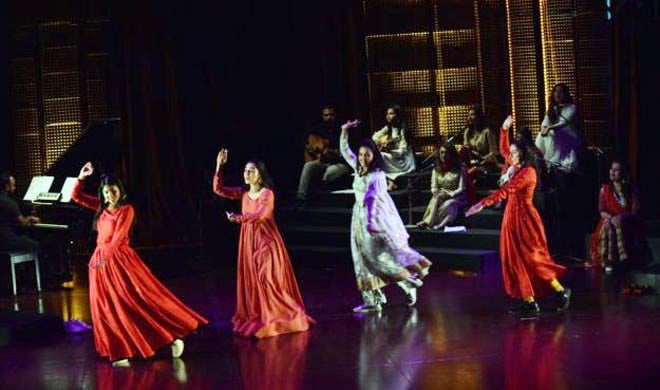
Pakistan has seen many phases of intense cultural repression that continues to date

From time to time there are media reports of a female dancer or an actor being murdered or assaulted. Recently, circulars were issued to educational institutions on dress codes and proper conduct. These reports, originating from all parts of the country but most from Khyber Pakhtunkhwa, give more than a glimpse into the various prejudices that still determine most of our behavioural patterns and actions.
Then there is news of a dancer or a vocalist having quit her profession or vocation and switching to work which is social in nature or better still, in the service of religion. Recently, there were reports in the media that Shazia Khushk had announced that she was giving up singing to devote the rest of her life to religious causes. Some years ago, "the Bo Kata girl", Fareeha Pervez also gave up singing and performing in public for a similar switchover.
It could be that these vocalists have passed their prime or the actors have started to age and are no longer sought after but the quitting of art, particularly the performing arts, is framed in such a way that it gives the impression of being an act of repentance; that the quitting is a kind of atonement for the life that one has been living and that the switchover is the consequence of seeing the light.
There are reports from various quarters, including the government, of putting in place various tribunals related to the matter carried in both the print and electronic media. The social media, too, has been under relentless scrutiny. The electronic media, too, is not permitted to go on air live but through a delay to facilitate censorship.
The total ban on the import of Indian films too can be seen in the same context. The moment things start to go sour between the two countries the first demand is to stop and ban and discontinue screenings. Shutting up the borders for whatever reason and not permitting the free flow of information and ideas is probably the most effective way of forcing the people of the land to think and feel in a particular way. No other way of thinking and feeling is permitted else charges of anti-state and anti-religious activities are bandied and a clamp down demanded.
In Pakistan, one has seen many phases of intense cultural repression. There has, even in the best of times, never been the kind and extent of freedom that is desired by the more enlightened sections of the population. The two sticks with which all this is beaten are patriotism and of course, religion.
Usually the crusade against any freedom is launched from the pad of a deep-seated prejudice, which despite all their posturing people have not really been able to overcome. Fears and the subsequent societal backlash are the reason these prejudices are capitalised upon in the name of a homogeneous order. When in the early years after partition local filmmakers, fearing competition from their Indian counterparts, launched a movement to ban Indian films, the imports were defended by Abdur Rab Nishtar, a very senior minister, with the assertion that since film making was un-Islamic, foreign films should be allowed into the country and Pakistanis should not be permitted to make films.
Since 1947, there have been undercurrents in support of a purge of our culture of non Islamic and immoral strains. From time to time efforts have been made to purge our poetry of its immorality and licentiousness. Often this has taken the form of exclusion from syllabi. Only those works have been included that are sanitised, rinsed through the laundry of a puritanic morality. In music too many attempts have been made to purge the major traditional forms of references to Hindu deities, and the names of the rags, the compositions and lyrics that flow from there.
Also read: The development action crisis
So one is not surprised at all to see a resurgence of the same puritan intent. It is something that lies just below the surface and has to be kept down with a conscious effort. The same cleansing act can be seen in the renaming of roads, mohallahs, and towns. The ‘unworthy’ names are being replaced by those with religious references. So particular and sensitive are we of this that just two names are left beyond reproach; those of Iqbal and Jinnah, for there is always the possibility of a blowback for any other name chosen. The hero of one is the villain of another and it is becoming increasingly difficult to appease all at the same time. This can only be done through tolerance, which is falling victim to narrow prejudices and parochial interests.
It appears that space for freedom of speech and action is shrinking all over the world. People, races, ethnicities, genders and religious denominations are getting pricklier themselves, and any references to these result in a backlash of sorts.